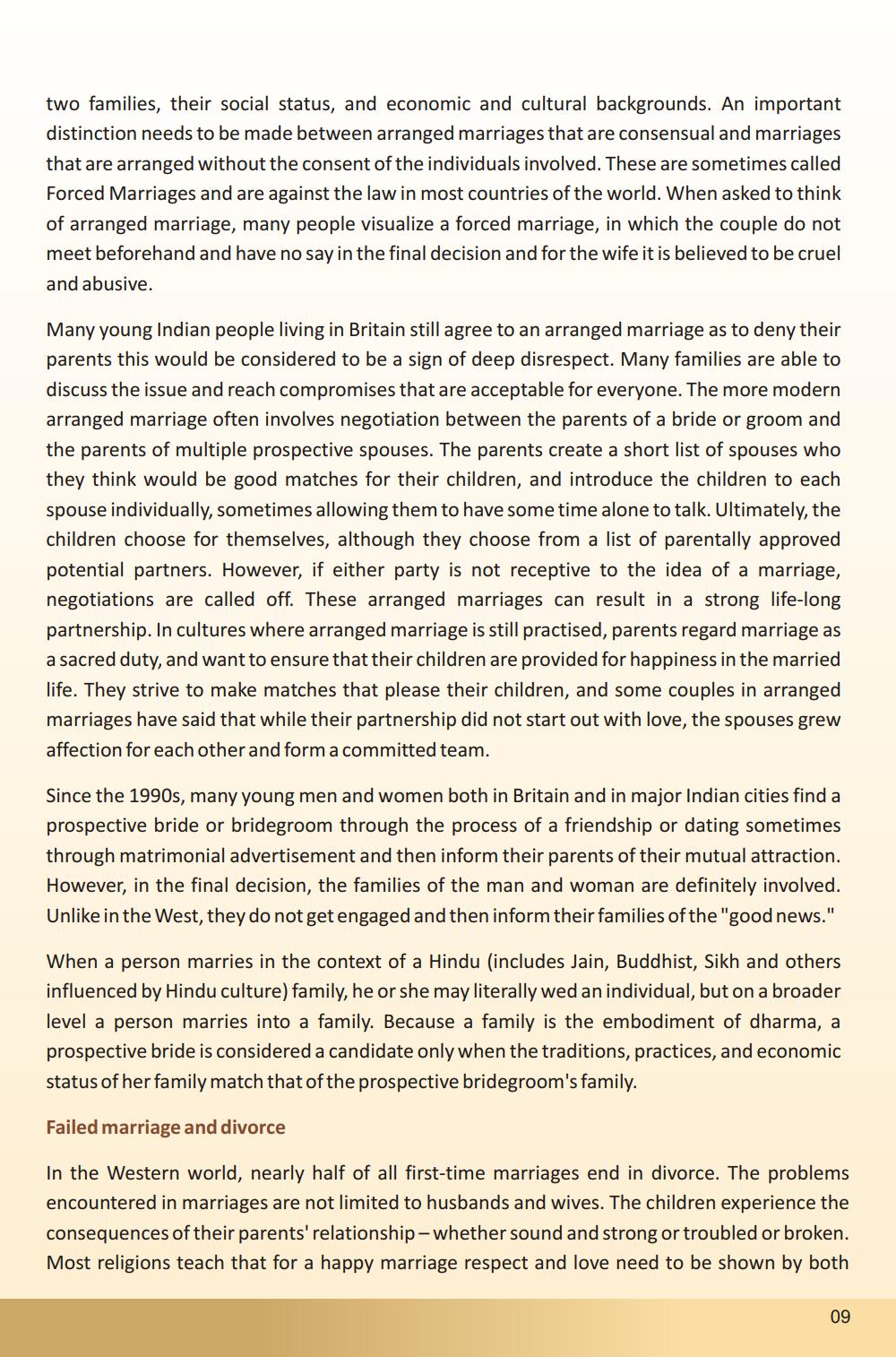Book Title: Marriage Author(s): Natubhai Shah Publisher: UK Jain Academy View full book textPage 9
________________ two families, their social status, and economic and cultural backgrounds. An important distinction needs to be made between arranged marriages that are consensual and marriages that are arranged without the consent of the individuals involved. These are sometimes called Forced Marriages and are against the law in most countries of the world. When asked to think of arranged marriage, many people visualize a forced marriage, in which the couple do not meet beforehand and have no say in the final decision and for the wife it is believed to be cruel and abusive. Many young Indian people living in Britain still agree to an arranged marriage as to deny their parents this would be considered to be a sign of deep disrespect. Many families are able to discuss the issue and reach compromises that are acceptable for everyone. The more modern arranged marriage often involves negotiation between the parents of a bride or groom and the parents of multiple prospective spouses. The parents create a short list of spouses who they think would be good matches for their children, and introduce the children to each spouse individually, sometimes allowing them to have some time alone to talk. Ultimately, the children choose for themselves, although they choose from a list of parentally approved potential partners. However, if either party is not receptive to the idea of a marriage, negotiations are called off. These arranged marriages can result in a strong life-long partnership. In cultures where arranged marriage is still practised, parents regard marriage as a sacred duty, and want to ensure that their children are provided for happiness in the married life. They strive to make matches that please their children, and some couples in arranged marriages have said that while their partnership did not start out with love, the spouses grew affection for each other and form a committed team. Since the 1990s, many young men and women both in Britain and in major Indian cities find a prospective bride or bridegroom through the process of a friendship or dating sometimes through matrimonial advertisement and then inform their parents of their mutual attraction. However, in the final decision, the families of the man and woman are definitely involved. Unlike in the West, they do not get engaged and then inform their families of the "good news." When a person marries in the context of a Hindu (includes Jain, Buddhist, Sikh and others influenced by Hindu culture) family, he or she may literally wed an individual, but on a broader level a person marries into a family. Because a family is the embodiment of dharma, a prospective bride is considered a candidate only when the traditions, practices, and economic status of her family match that of the prospective bridegroom's family. Failed marriage and divorce In the Western world, nearly half of all first-time marriages end in divorce. The problems encountered in marriages are not limited to husbands and wives. The children experience the consequences of their parents' relationship-whether sound and strong or troubled or broken. Most religions teach that for a happy marriage respect and love need to be shown by both 09Page Navigation
1 ... 7 8 9 10 11 12 13 14 15 16 17 18 19 20 21 22 23 24 25 26 27 28 29 30 31 32 33 34 35 36 37 38 39 40 41 42 43 44 45 46 47 48 49 50 51 52 53 54 55 56 57 58 59 60 61 62 63 64 65 66 67 68 69 70 71 72 73 74 75 76 77 78 79 80 81 82 83 84 85 86 87 88 89 90 91 92 ... 96
